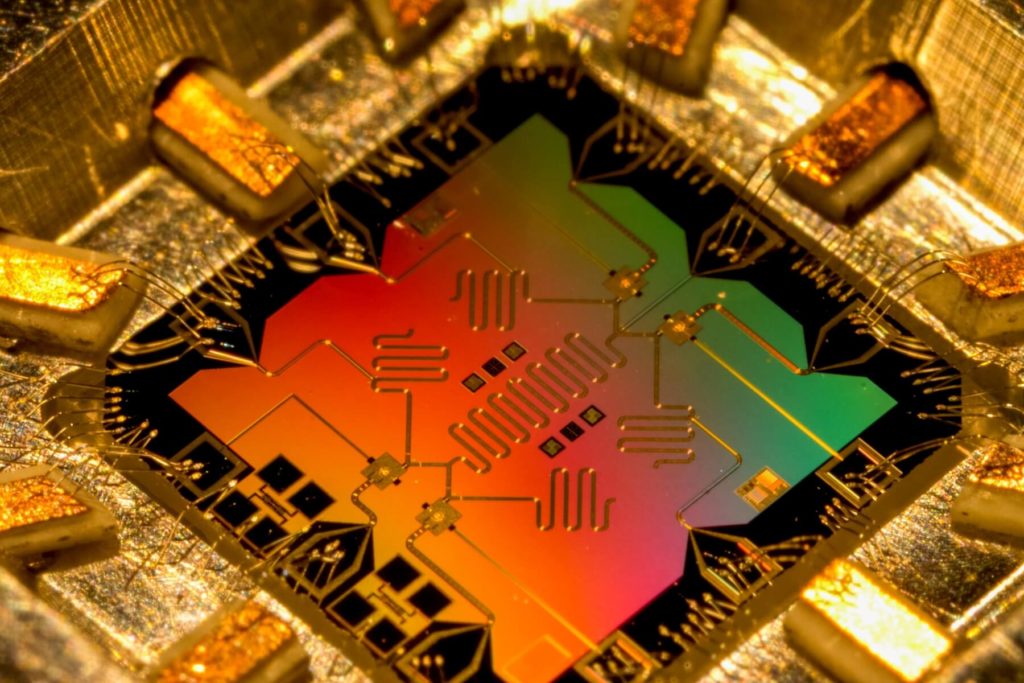A very quantum summer for high schoolers
Thirty students took a week off their holidays to get a crash course into the future of quantum technologies.


WHAT IS QUANTUM computing? How do you manipulate information of the quantum level? What does the hardware of a quantum computer look like? These are just some of the questions tackled in a summer camp for high school students from around Australia.
For the second year running, SQA staged a Quantum Computing Summer Camp in January 2023 with guest speakers from the frontiers of quantum research, live online lessons from doctoral students who have chosen a quantum career, as well as demonstrations of experiments and a visit to quantum laboratories in Sydney.
The week-long virtual camp brought together 30 students from New South Wales, Victoria, Queensland, Tasmania, South Australia and the Australian Capital Territory – from cities and regional areas, public and private schools in Years 9-12 – who had applied for scholarships to attend the virtual seminars.
The summer school was partnership between SQA and Qubit by Qubit, a U.S. non-profit specialising in online teaching created by researchers at Harvard, Stanford, MIT and Oxford universities, with IBM Quantum generously funding equity scholarships. On the last day of the camp, SQA offered activities in person at the Sydney Nanoscience Hub on the Camperdown campus of the University of Sydney.
One of the students, an Iraqi refugee who arrived in Australia in 2019 speaking only Arabic was awarded a scholarship to attend the camp in January 2023, and said she found the experience “incredibly inspiring”.
“The knowledge and skills I gained through the camp have truly ignited a passion within me for quantum computers. I’m filled with enthusiasm and determination to pursue a pathway in this exciting field,” she said.
The experience also motivated her onto enter the Breakthrough Junior Challenge, a global competition for students 13 to 18, where participants create videos to bring scientific concepts to life. Her video explained how quantum computers differ from classical computers, highlighting the role of quantum superposition and entanglement in solving equations. She is now pursuing a combined Bachelor of Engineering in robotics and mechatronics and a Bachelor of Business in analytics at Western Sydney University.
The lessons and talks were delivered by leading researchers and their PhD students from SQA’s partner universities – University of Sydney, UNSW Sydney, UTS and Macquarie University – all based in Sydney, which hosts Australia’s largest concentrations of quantum experts.
Amanda Seedhouse, an SQA scholarship recipient who now works as a theoretical physicist at quantum computing start-up Diraq, was one of the teachers of the week-long program.

“We used these cool online tools to replicate experiments in the lab,” she said. “The kids were enthusiastic and really wanted to be there, so it was relaxed and quite fun. We finished my session 10 minutes early, so I asked if they had any general questions – and they wanted to hear about my PhD research. And they were like, ‘Wow, that’s so cool’.”
For the second year running, the scholarships – targeting students from culturally diverse or socially disadvantaged backgrounds – were funded by IBM Quantum to help widen the participation of backgrounds traditionally underrepresented in the fields of STEM (science, technology, engineering and mathematics).
Just over half of the students taking part identified as female, 45% as culturally and linguistically diverse, 28% as LGBTQIA+ and 3% as non-binary.
“Diversity and early engagement in the talent pipeline are crucial in developing a robust and flourishing quantum ecosystem,” said Astri Cornish, IBM Quantum Community Developer Advocate. “IBM Quantum is proud to have supported this summer camp with Sydney Quantum Academy again in 2023 to inspire, engage, and improve the skills of quantum talent in Australia — and to help build an inclusive quantum workforce now and into the future.”
SQA, which is committed to growing the quantum ecosystem in Australia and making quantum education and training accessible to all, was delighted with the result. “Quantum technologies are at the intersection of physics, computer science, and engineering – so they are a great way to explore a range of STEM topics,” said Prof Peter Turner, SQA’s CEO. “And they’re going to be vital skills, since quantum has the potential to change the world with applications in nearly every industry.”